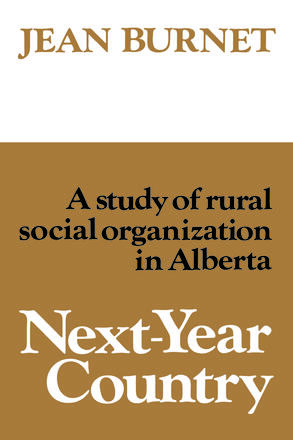
Description
In this study of the problems of social organization in a rural
community of Alberta, a drought-afflicted wheat-growing area centring round the town
of Hanna is described as it appeared to the sociologist in 1946.
Dr Burnet
examines geographical and economic conditions in Hanna, and shows how farming
practices, ways of living, and modes of tenure brought into the area from more humid
regions proved ill adapted to the dry belt and delayed economic adjustment. In turn,
the difficulties in the realm of economics had adverse social and cultural
consequences in both the households and the community as a whole.
The Hanna
area was chosen for study, though not altogether typical, because it revealed more
clearly than other areas not so severely hit by the drought of the 1930s the kind of
disturbances within the Alberta social structure which made possible the rise of the
Social Credit movement.
Reviews
‘Dr Burnet’s factual story is as fascinating as a novel. Brilliantly organized, and written with striking clarity, the work never loses touch with human values … This searching analysis admirably fulfils its purpose in revealing the kinds of disturbances present in the rural social organization of Alberta, but its findings are of much more general application.’
- Canadian Geographical Journal
‘Dr. Burnet’s book is destined for a place on the small but indispensable shelf of studies which have made genuine contributions to the sociology of Canadian communities.’
- Queen’s Quarterly